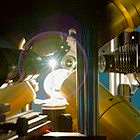
Research
Investigate materials using containerless processing techniques. Leverage new
developments in aero-acoustic levitation to hold deeply undercooled melts,
maintain solids and liquids at T > 3000°C, and record phase transition occurrences.
Eliminate the need for inert containers in high temperature investigations.
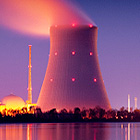
The Nuclear Industry
Well-controlled property and process studies are possible on liquids at very high
temperatures. Liquidus and melting temperatures of nuclear materials, density, surface
tension, viscosity, of melts, vaporization and component evolution rates for molten materials,
and formation of glasses for nuclear waste storage are some of the investigations enabled by
levitation experiments.
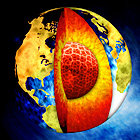
The Earth Sciences
Mineralogy, crystallization, phase fields, thermal processing. Thermodynamic properties
of melts and undercooled liquids may be possible by developing novel calorimetric instruments.
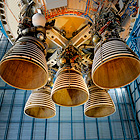
Propulsion
The wake of aluminum-fueled rockets contains liquid aluminum oxide. Its optical,
undercooling, recalescence, and other properties influence radiant heat transfer rates.
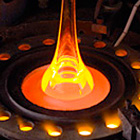
The World of Glass
Novel glass can be formed from deeply undercooled melts, studies of fragile glass forming
liquids, viscosity and surface tension by developing drop oscillation or acoustic compression
and relaxation experiments, thermodynamics by developing novel calorimetry. Efficient
investigation of composition variables.
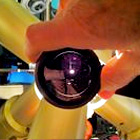
Use Your Imagination
The AAL can achieve temperatures close to 4000°K, the radiance temperature of the sun.
The ability to study materials up to such temperatures opens up new possibilities
in materials science research and for industrial applications. The liquid state of
borides, carbides, and other refractories is not well understood.








